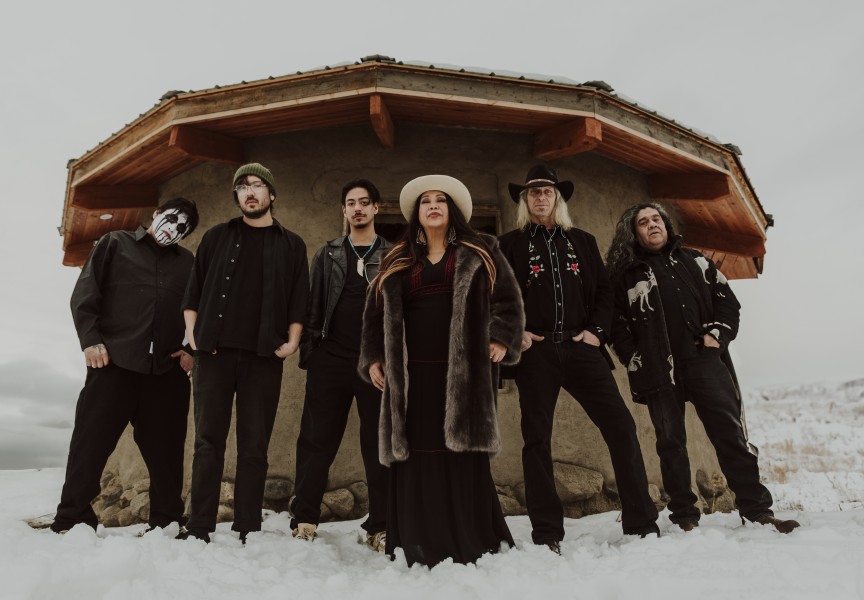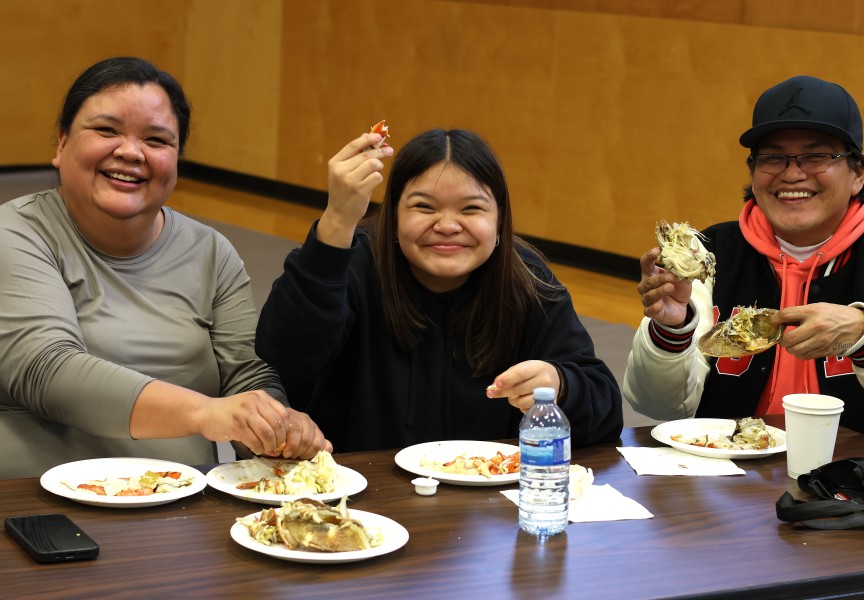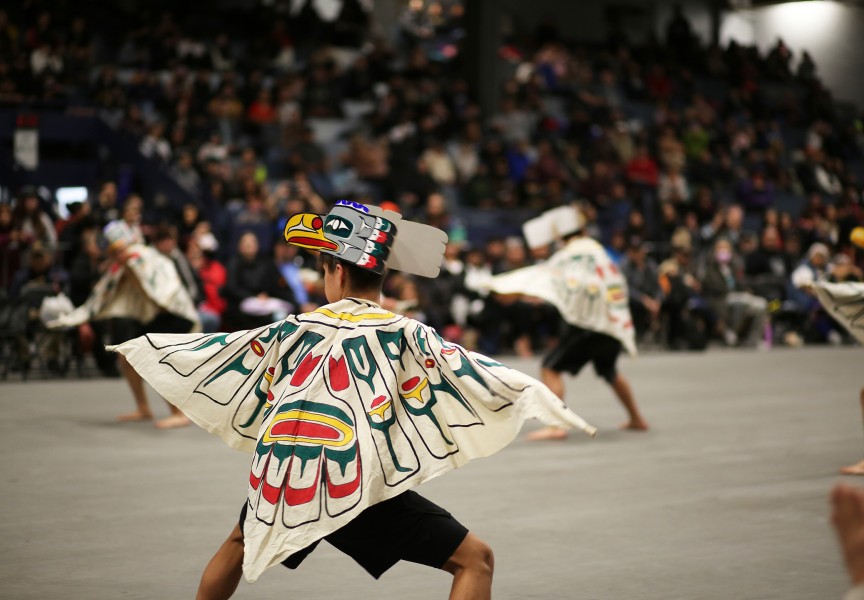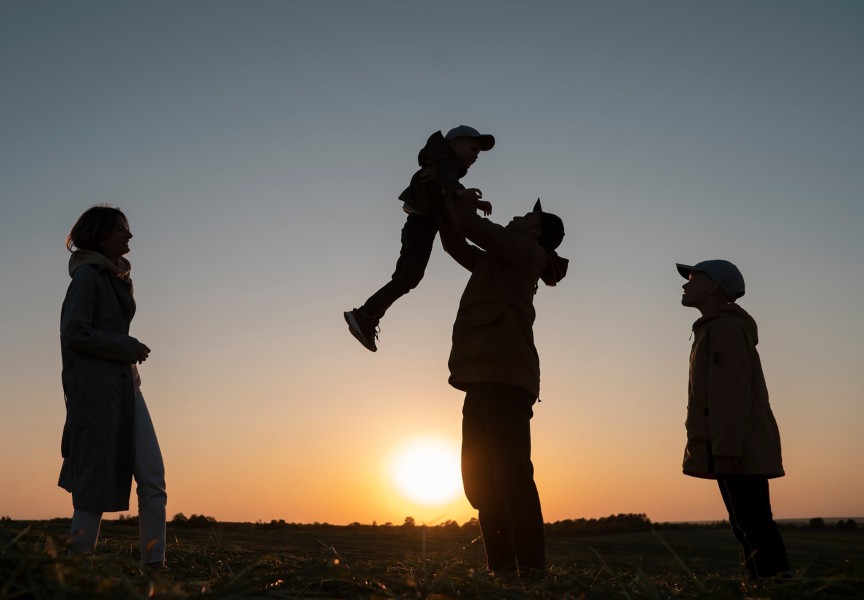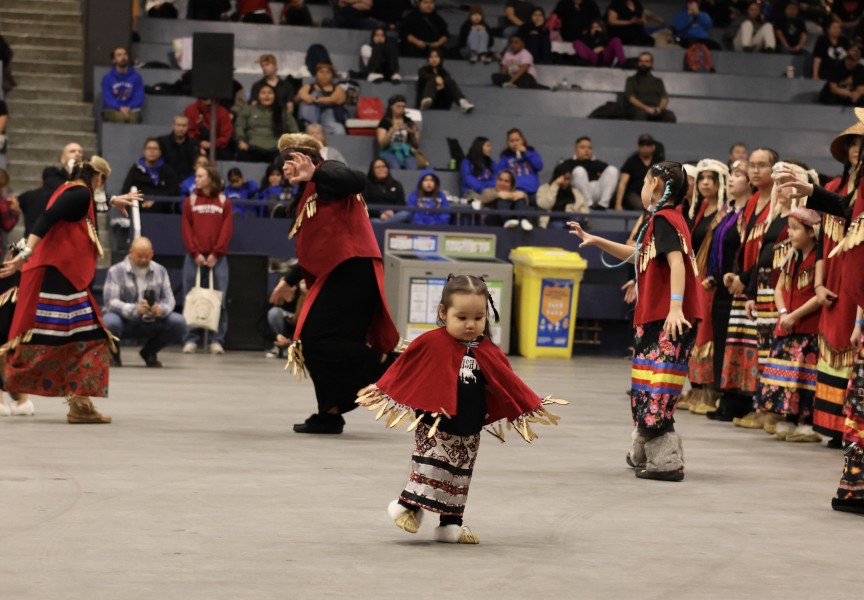There was no scripted agenda at recent gathering of fluent Nuu-chah-nulth speakers; only encouragement to speak the language, allowing it to be recorded for the benefit of new learners and future generations.
The gathering, co-hosted by Tseshaht First Nation and the Nuu-chah-nulth Tribal Council, was part of a series of events with a focus on language.
“The goal for the gathering was to provide an opportunity for the community of language speakers, supporters, and learners to come together to experience and participate in fluent language speaking and to network to continue the work of language development among Nuu-chah-nulth-aht,” said Ian Caplette, NTC’s Director of Education, Training and Social Development.
He went on to say that previous gatherings were held in Zeballos and Tsaxana in mid-March. “The gatherings are important due to the status of Nuu-chah-nulth language;” Caplette said, adding, “there are fewer and fewer fluent speakers each year and we need concerted efforts across nations to support a rebuilding of fluency, so that this vital aspect of our identity as Nuu-chah-nulth peoples remains a source of strength and unity for generations to come.”
Organized by Language Program Coordinator Christina John, the two-day event took place at Maht Mahs on Mar. 29 and 30 and was attended by fluent speakers, semi-fluent speakers and learners. There was also a strong showing of educators that work in schools teaching Nuu-chah-nulth language and culture.
John is employed on a three-year contract as a language coordinator through a provincial language initiative. A portion of her duties include the making recordings of the Nuu-chah-nulth languages and to take part in events, such as the one held at Maht Mahs.
Funding for John’s position and the language gatherings came from the BC Language Initiative through the First Peoples Cultural Council, which supports B.C. First Nations communities to maintain, preserve and restore their languages.
Hinatinyis (Brittany Johnson) served as emcee for the event and invited people to introduce themselves. Almost all that took the microphone used one of three dialects of the Nuu-chah-nulth language to introduce themselves Nuu-chah-nulth style. They gave their English and Nuu-chah-nulth names, told which nations their extended family comes from and shared who their parents and both sets of grandparents are.
With all levels of speakers and learners invited to participate, the introduction exercise took the full morning of the first day.
Jaylene Lucas told the crowd that although she grew up hearing the language from her grandparents, she never really started speaking it until she started working as a language apprentice with her mentor, Maggie Ignace of Hesquiaht. Now, she is slowly starting to put sentences together.
“I am lucky to have my mother (who is fluent),” said Linus Lucas, who described himself as semi-fluent. “My son is more fluent than I am and my hope is that my grandchildren will be fully fluent.”
Larry Thomas, age 77 of Ahousaht, says he is still learning the language. The residential school survivor said that he was in Alberni District Secondary School in 1957 when residential school children were integrated into the public system. Thomas is a singer and prides himself on learning the stories behind each of the songs he sings so that he can share these teachings with future generations.
Marie Samuel calls herself a silent speaker. She grew up hearing her Uchucklesaht family speaking the language. She started taking language classes in 1999 with Huu-ay-aht elder Angie Joe and now she is going to take a course for silent speakers.
“I know it’s in my >iimaxti (spirit),” she said, patting her heart. The word is pronounced ‘tlii-maq-stee.’
When Angie Miller of Hupacasath introduced herself she told the crowd that she was still learning to speak the language. It was important to her because her father, late Earl Tatoosh, was Hupacasath’s last fluent speaker.
Miller is enrolled in the UVic Language Revitalization Program and said it is her retirement plan to learn the language.
According to Caplette, the NTC is engaged in a multi-year language revitalization project in SD 70 and SD 84 public schools. The NTC’s Nuu-chah-nulth education workers serve in all schools in both districts.
“This event was intended to bring together the language community to get feedback about language initiatives, which can align activities and priorities among the diverse groups of language enthusiasts,” he said.
Besides building a resource for future generations, the gathering brought together various groups and resources in one place.
“These Gatherings provided a necessary space for conversations to be held, which will provide strategic direction on the future of the Nuu-chah-nulth Tribal Council’s Language Program,” said Caplette. Those who are interested in supporting language development toward fluency should contact Chrissie John, NTC’s Language Program Coordinator, for further information on how they can be involved or for more information on language learning efforts underway in their area, he continued.
“My heart and soul was so happy to be amongst so many speakers; it was music to my ears!” said fluent speaker Patti Frank. “To hear the heartfelt stories, I even got emotional trying to express my feelings of my father for teaching me all that I know and those who taught me the ways of our people.”


